May 8 - 14 2016: Issue 262
Pouch-Checking Our Marsupials
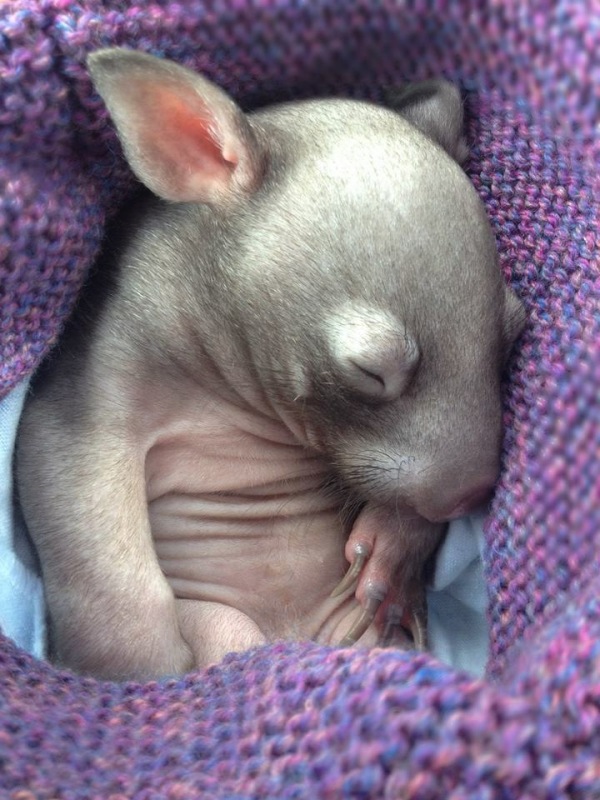
Orphaned wombat joey (her mum was hit and killed on the road, but thankfully some kind soul stopped to check mum’s pouch)
Pouch-Checking our Marsupials
How many Australian marsupials can you name?
Marsupials are a class of mammals living primarily in Australasia (although the Americas have a few). A distinctive characteristic of marsupials is that most of the young are carried in a pouch. Some well-known Australian marsupials include kangaroos, wallabies, koalas, possums, wombats, bandicoots and Tasmanian devils. Other marsupials include numbats, bettongs, bilbies, quolls, and quokkas. The young are often referred to as joeys.
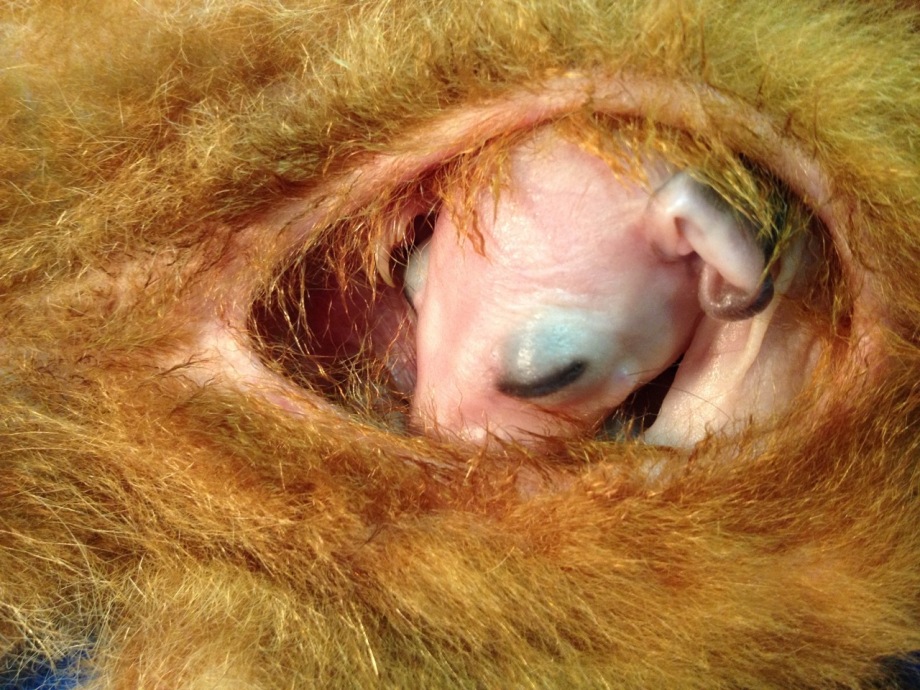
Brushtail possum joey in his mum’s pouch.
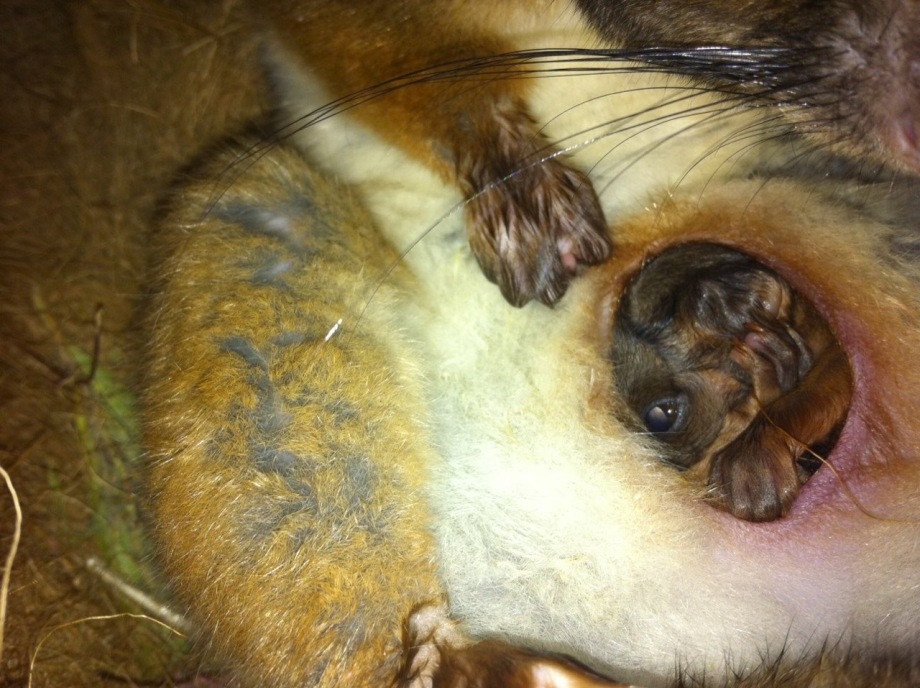
Ringtail joey in her mum’s pouch.
Did you know that if a marsupial is hit and killed on the road, her baby (joey) may still be 100% okay? The mum’s pouch provides a very safe and protective environment and many babies can remain in the pouch for days after the mum has died. It is imperative, therefore, to stop and check the bodies of our marsupial mammals to see if there might be a baby on board.
The most important thing to remember is that you should only stop IF IT’S SAFE FOR YOU AND EVERYONE ELSE ON THE ROAD to do so. If you are able to pull your vehicle right off the road and not obstruct/impede the flow of traffic and you are not placing yourself or your passengers in any danger, you can then perform a pouch-check.
Worried that you won’t know what to do? It helps to be prepared. We always suggest that every vehicle carry a few little items which will come in handy if you come across a deceased or injured animal.
To perform a pouch-check, you will need the following items:
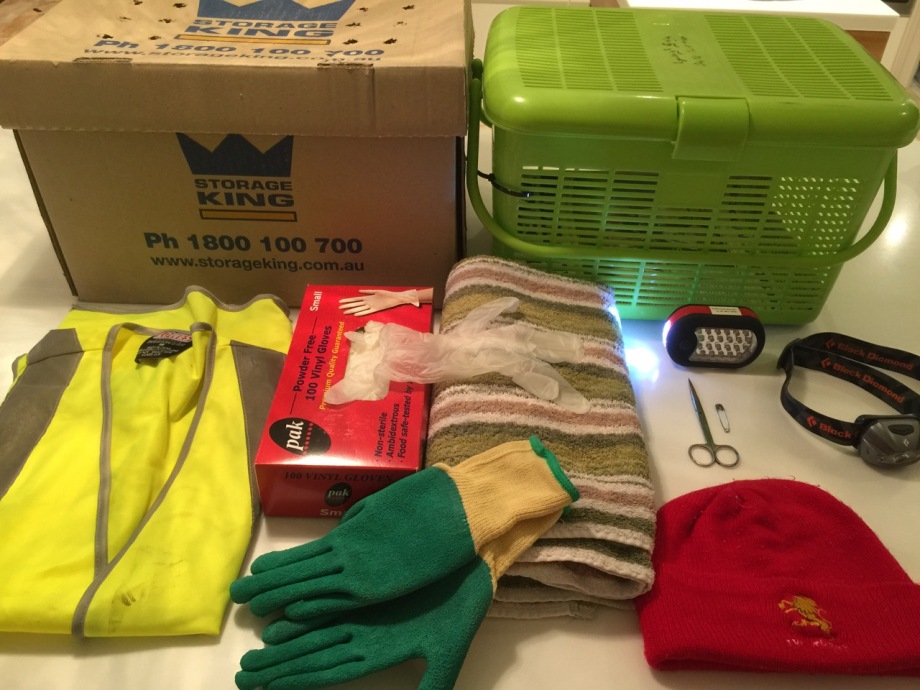
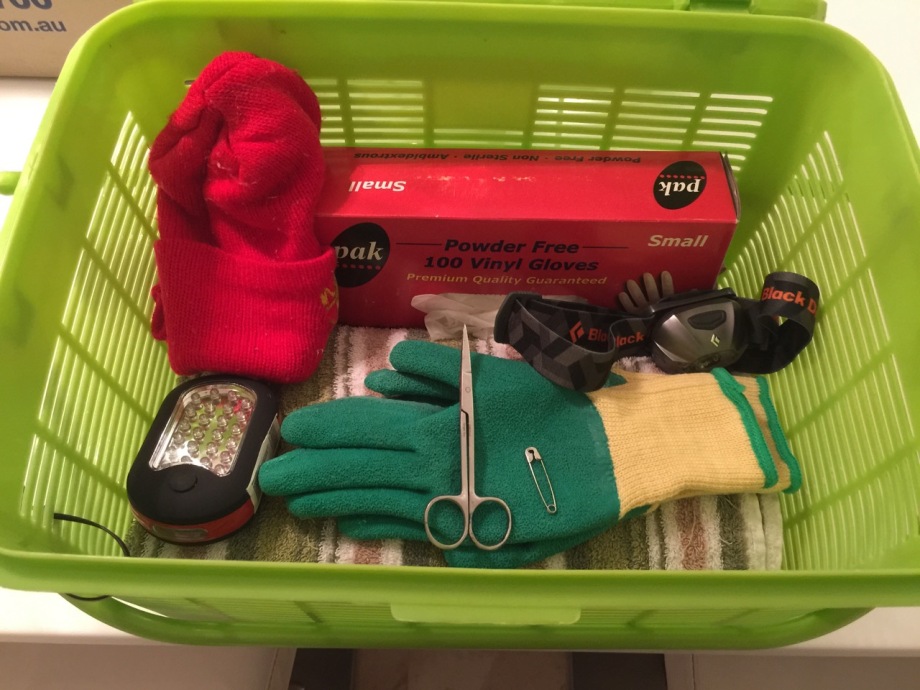
• A box (or a basket)
• A towel
• Disposable gloves and/or gardening gloves
• A torch (in case you do a pouch-check at night)
• A beanie (to wrap up a joey)
• Scissors
• Safety pin
Boxes are good for holding almost any small marsupial or bird. Plastic baskets (only $20 at Hot Dollar Shops are a great alternative). High-vis vests are available at Lowes, Big W and Target.
What to do:
1. Once you have pulled over in a safe spot, put on your high-visibility vest.
2. Pull the deceased animal well off the road.
3. Roll the animal onto its back to check if it is male or female. The boys usually have obvious testes (like 2 cotton-balls); the female has a pouch (which is less obvious in smaller marsupials such as ringtail possums and bandicoots).
4. If the animal is male, obviously the pouch-check is unnecessary.
5. If the animal is female, you should perform the pouch-check, even if rigor mortis has set in as the joey can still be present.
6. Put on your disposable gloves.
7. It may be necessary to really pull the skin of the pouch to check deep down.
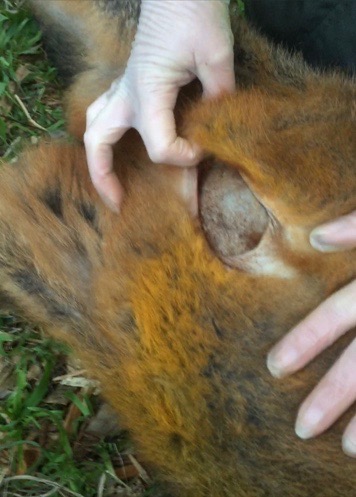
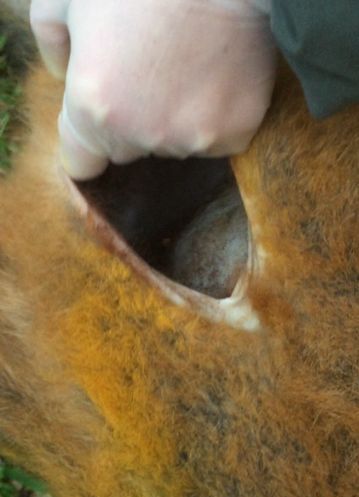
1. If there is a joey, it will likely be attached to one of the mum’s teats/nipples. You cannot simply tear the joey from the nipple as you will injure its jaws, There are two choices: pick up the dead mum and baby and take them both to a local veterinarian to help you extract the baby OR cut the teat. This is why we suggest you carry scissors and a safety pin.
2. If you cut the teat, you don’t want the baby to swallow it, so you put a safety-pin through the flesh of the teat and then cut below the pin so that the pin stops the baby from swallowing the elongated nipple.
3. Once you have extracted the joey, wrap him/her in a beanie/jumper/towel and pop it down your shirt for warmth. The most crucial part of the baby’s survival is warmth. They cannot even drink fluids until they are warm enough.
4. Ring your local wildlife rescue organisation and get them to raise the joey. Only registered carers are legally able to raise joeys. Do not attempt to feed the joey!
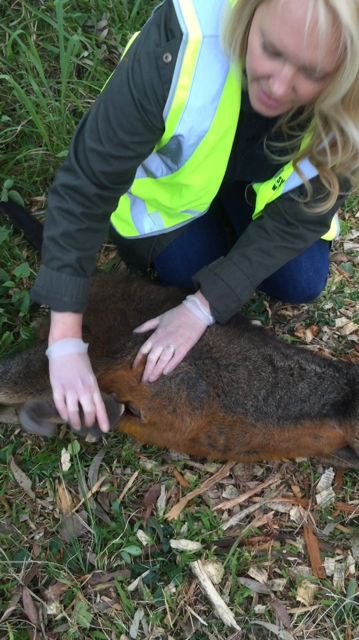
Wildlife rescue organisations are well-equipped to raise the joeys. Southern Cross Wildlife Care, Sydney Wildlife and Wires are the local rescue organisations for the Pittwater area.
Your first pouch-check might be a little intimidating, but one day you just might come face-to-face with a little joey, with pleading eyes, in need of your help :)
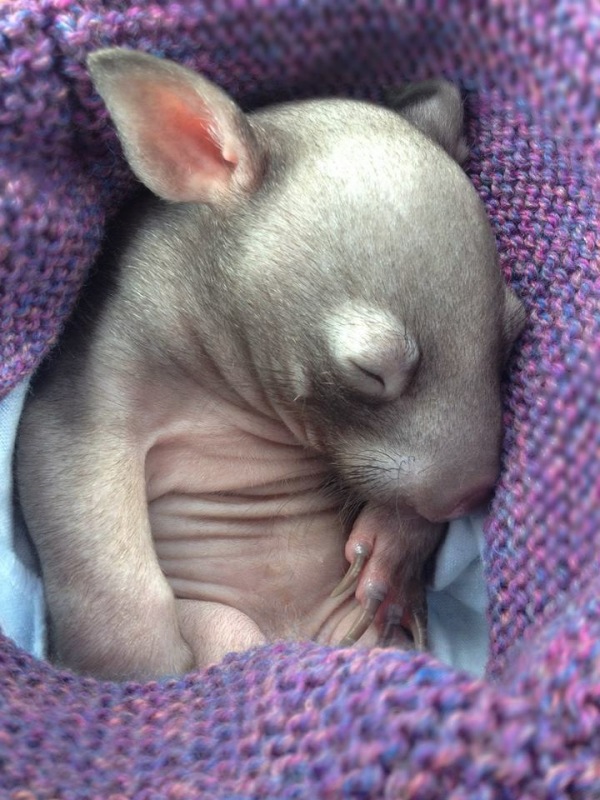
Orphaned wombat joey (her mum was hit and killed on the road, but thankfully some kind soul stopped to check mum’s pouch)
By Lynleigh Greig
Southern Cross Wildlife Care